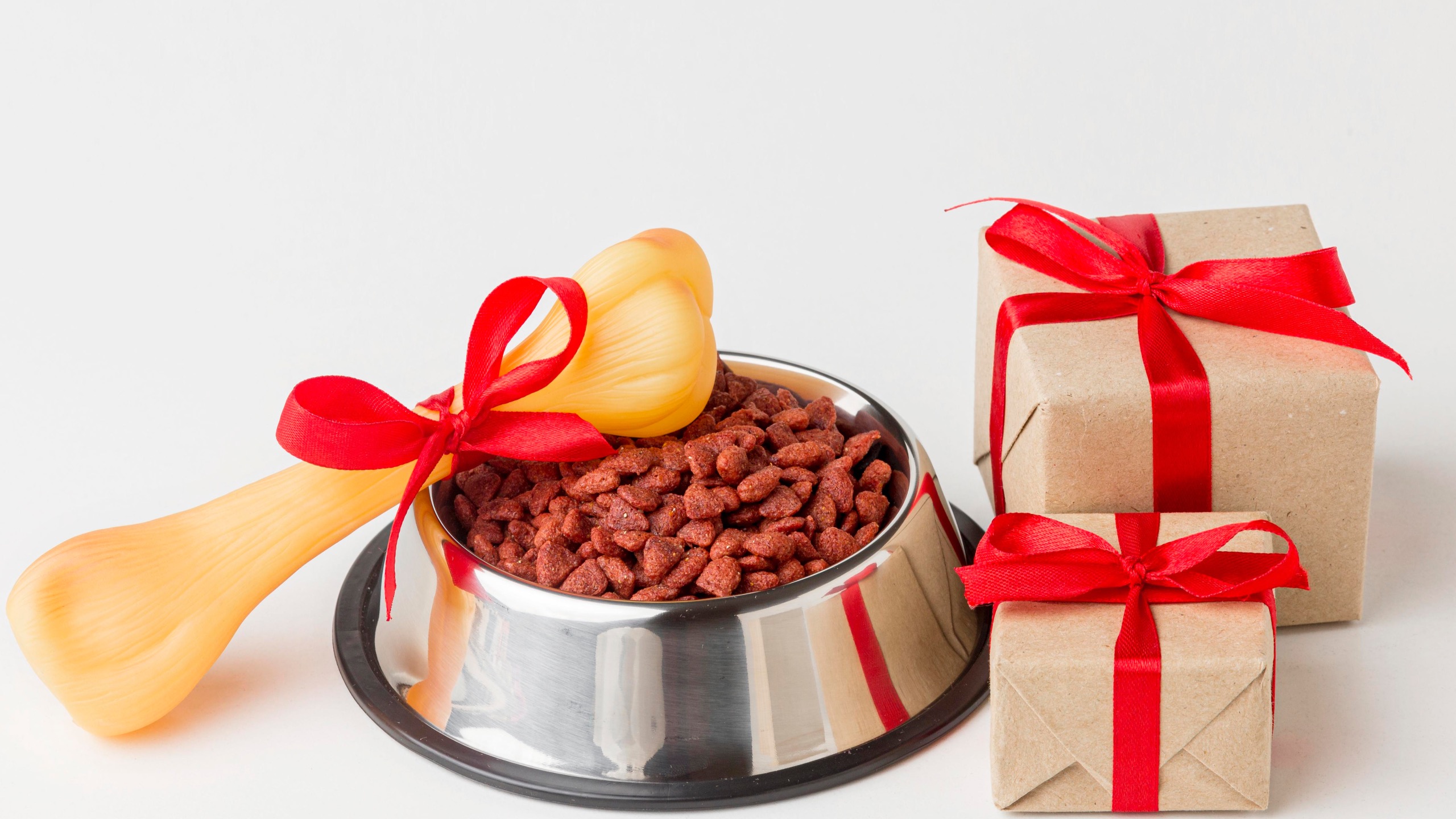As the temperature drops and winter settles in, it’s important to ensure your dog stays healthy, happy, and well-nourished during the colder months. Just like humans, dogs can experience changes in their energy levels and nutritional needs as the seasons shift. Proper winter foods for dogs can help support their immune system, maintain a healthy coat, and provide the energy they need to stay active and playful, even when it’s chilly outside.

In this guide, we’ll explore some of the best winter foods to keep your dog happy, healthy, and well-fed through the colder months.
1. High-Quality Protein to Keep Your Dog Energized
Winter months can lead to lower energy levels in some dogs, but proper nutrition can help maintain their vitality. A good source of protein, such as chicken, turkey, beef, or fish, is essential for maintaining muscle mass, energy, and overall health. Protein also supports the immune system, helping your dog fight off any seasonal illnesses.
Look for dog foods or treats that list high-quality animal protein as the first ingredient. If you’re preparing homemade meals for your dog, ensure the protein is cooked thoroughly and free from harmful additives like seasoning or garlic.
2. Healthy Fats for Coat and Skin Health
As temperatures dip, dry air can cause your dog’s skin to become dry and flaky, and their coat may lose some of its shine. Healthy fats are crucial for keeping your dog’s skin and coat in tip-top shape during winter.
Foods rich in omega-3 and omega-6 fatty acids, such as salmon, flaxseeds, and fish oil, help to nourish your dog’s coat and skin. You can add a bit of fish oil to their food or look for dog food formulas that contain these essential fatty acids. These fats also support your dog’s brain and heart health.
3. Carbohydrates for Energy and Warmth
Carbohydrates provide a steady source of energy, which is essential for keeping your dog active during the winter months. Sweet potatoes, pumpkin, and carrots are excellent sources of healthy carbohydrates that are easy for dogs to digest. These foods are also packed with fiber, which helps with digestion and overall gut health.
Additionally, sweet potatoes and pumpkin are rich in antioxidants, vitamins, and minerals like vitamin A and potassium, which support your dog’s immune system and promote overall well-being.
4. Warm Broths for Hydration and Comfort
In winter, dogs may drink less water due to the colder temperatures. To keep your dog hydrated, consider adding a warm, dog-safe broth to their meals. Bone broth, which is rich in collagen, can be especially beneficial for your dog’s joints and bones, helping to keep them comfortable during cold weather.
Make sure to choose broths without any added salt, onions, or garlic, as these ingredients can be toxic to dogs. You can even make your own dog-safe broth at home using bones and water.
5. Vegetables for Added Nutrients
In addition to the typical protein sources, winter vegetables can provide your dog with vital vitamins, minerals, and antioxidants that support their immune system and overall health. Common dog-safe vegetables like green beans, spinach, and peas are high in fiber and low in calories, making them great for your dog’s digestion and weight management during the winter months.
Vegetables are also an excellent source of vitamins A and C, which help to protect your dog’s immune system and maintain healthy skin. Make sure to cook or steam these vegetables to make them easier for your dog to digest.
6. Coconut Oil for Joint and Skin Health
Cold weather can sometimes cause joint discomfort in dogs, especially older pets. Coconut oil is a great addition to your dog’s diet during winter because it contains medium-chain triglycerides (MCTs) that can support joint health, reduce inflammation, and even help improve skin moisture.
Coconut oil also has antifungal and antibacterial properties that can help promote healthy skin. Just be sure to introduce it gradually, as too much coconut oil can upset your dog’s stomach.
7. Supplements for Immune Support
Winter is a time when many dogs are more susceptible to illness due to colder temperatures and changes in their environment. Consider adding supplements to your dog’s diet to support their immune system. Omega-3 fatty acids (found in fish oil), glucosamine (for joint health), and probiotics (for gut health) can all provide valuable support.
You can also look for supplements that contain vitamin C and vitamin E, which are known to help boost immunity and provide additional protection during flu season.
8. Hydration is Key
While not technically a “food,” keeping your dog properly hydrated is especially important in winter. Many dogs drink less water when it’s cold outside, but dehydration can lead to kidney problems and other health issues. In addition to offering fresh water, try incorporating wet food into their diet, or add water to their kibble to increase hydration levels.
Consider offering warm water or low-sodium broth in a bowl to encourage drinking. Hydration will also help with digestion and overall health.
Conclusion: Winter Diet for Dogs
Maintaining a healthy and balanced diet during the winter months is crucial for keeping your dog happy and healthy. From protein-packed meats to hydrating broths and skin-nourishing fats, the right foods can support your dog’s energy levels, immune system, and overall well-being. By incorporating these winter foods into your dog’s diet, you can help ensure they stay active, comfortable, and well-fed through the cold season.
Remember to always consult your veterinarian before making significant changes to your dog’s diet, especially if you’re introducing new foods or supplements. With the right nutrition, your dog will be able to enjoy the winter months just as much as you do!
